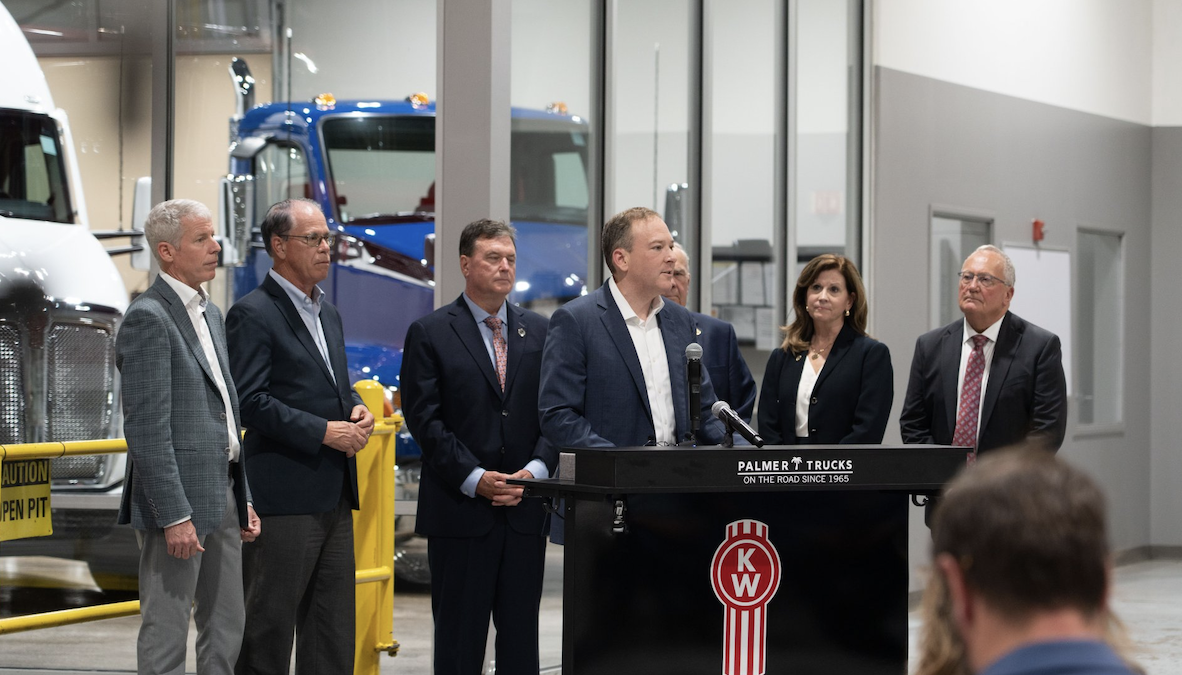Research & Developments is a blog for brief updates that provide context for the flurry of news regarding law and policy changes that impact science and scientists today.
Update, 29 January 2026: The EPA expected to finalize its repeal of the 2009 Endangerment Finding in early 2026. But according to the Washington Post, some federal officials say the rule’s finalization is delayed over concerns from the White House’s Office of Information and Regulatory Affairs (OIRA) that the scientific and economic analysis in the proposal will not withstand a court challenge.
EPA officials have pushed back against these concerns and continue to push for finalization as soon as possible, the Post reported. “OIRA, EPA, and the entire administration are working in lockstep to execute on the President’s deregulation agenda,” Allie McCandless, a spokeswoman for the Office of Management and Budget, which oversees OIRA, told the Post.
25 August 2025: Advocates, scientists, doctors, members of Congress, kids, parents, and other individuals spoke out in a series of hearings last week to let the Environmental Protection Agency know how they feel about a potential sea change in climate and environmental policy: the proposed repeal of the 2009 Endangerment Finding.
Related
• Submit Your Own Public Comment
• EPA Releases Proposal to Rescind Endangerment Finding
• Public Commenters Overwhelmingly Oppose EPA’s Plan to Curtail Key Climate Protections (Mother Jones)
• What’s Changed—and What Hasn’t—Since the EPA’s Endangerment Finding
• Get Involved: AGU Science Policy Action Center
In 2009, the EPA found that current and projected concentrations of greenhouse gases threatened the public health and welfare of current and future generations. The finding is the legal underpinning for many EPA greenhouse gas regulations. The EPA announced a proposal to rescind the finding on 29 July at an auto dealership in Indiana. If finalized, the proposed rule would repeal “all greenhouse gas emissions regulations for motor vehicles,” according to the EPA.
Day 1 of public hearings, 19 August, opened with remarks from Aaron Szabo, assistant administrator in the Office of Air and Radiation. Szabo indicated the EPA’s proposal to reconsider the Endangerment Finding was aligned with President Trump’s commitment to “unleash American energy, lower costs for Americans, [and] revitalize the American auto industry.”
The proposal was open for public comment from 19-22 August, and remains open for written submissions.
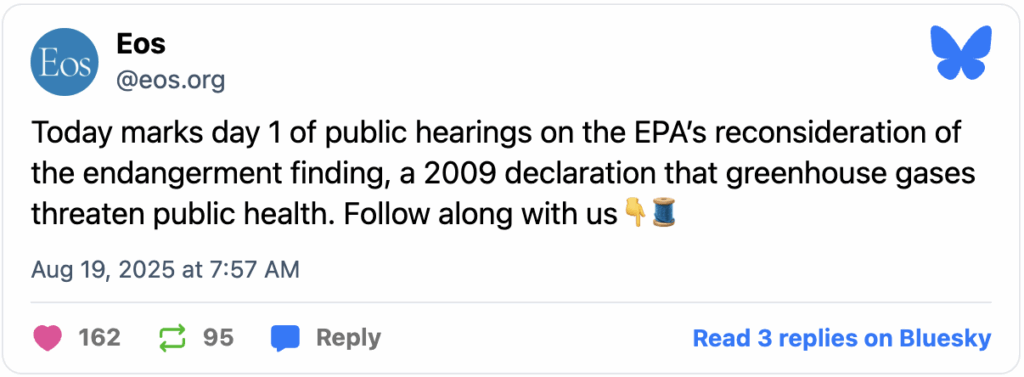
The following nearly 12 hours of testimonies included a series of comments from state attorneys general, pleas from parents and children concerned about respiratory health, and physicians arguing that the Endangerment Finding protects their patients.
The vast majority of speakers asked the EPA not to revoke the Endangerment Finding, and many said the proposal to do so countered EPA’s mission to protect human health and the environment.
The next day, hearings resumed after additional comments from Szabo and the EPA’s Bill Charmley, director of the agency’s Assessment and Standards Division. Charmley said even after the hearings, anyone could still send the EPA written comments, and that the EPA would provide a written response to the testimonies in the near future.
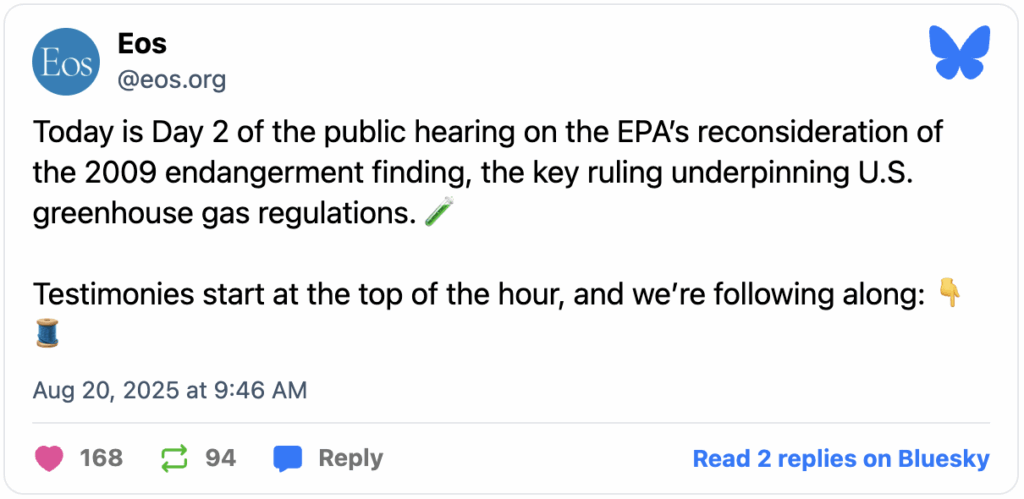
Representatives from multiple religious organizations provided testimonies against the EPA proposal, arguing that members of certain faiths have a religious responsibility to protect the environment and keep children and vulnerable people safe from the health harms that climate change brings.
Days 3 and 4 included hour upon hour of additional testimonies, still almost entirely against the proposal.
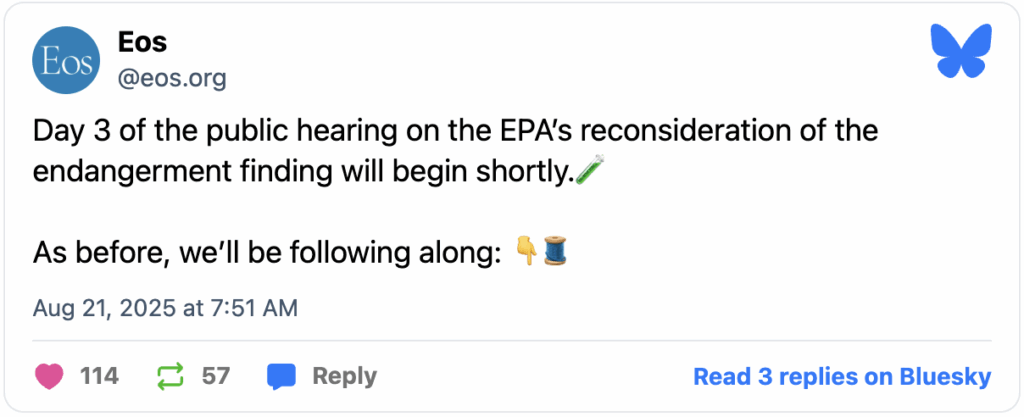
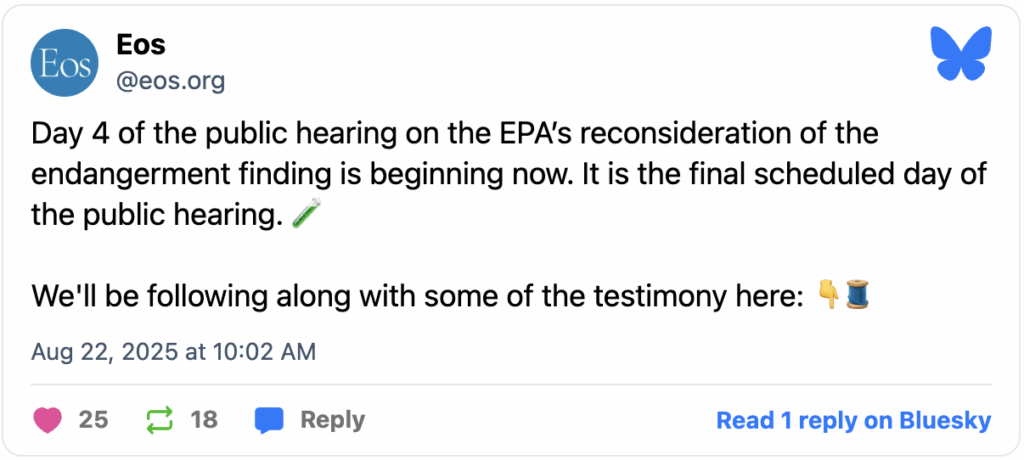
Clean air advocacy groups, such as Moms Clean Air Force, had a strong showing at the hearings. Many parents affiliated with such groups recounted stories of watching their children suffer from asthma attacks, heat-related health problems, and the stress of growing up in a quickly changing world.
By our count, at the end of the four full days of public hearing testimony, we’d heard hundreds of Americans speak out against the EPA proposal and fewer than 20 speak in favor. Those in favor of rescinding the Endangerment Finding included representatives from the American Petroleum Institute, the CO2 Coalition, and auto industry trade groups, as well as Kathleen Sgamma, an oil and gas advocate who was under consideration to lead the U.S. Bureau of Land Management but withdrew.
—Grace van Deelen (@gvd.bsky.social), Staff Writer
These updates are made possible through information from the scientific community. Do you have a story about how changes in law or policy are affecting scientists or research? Send us a tip at [email protected].


